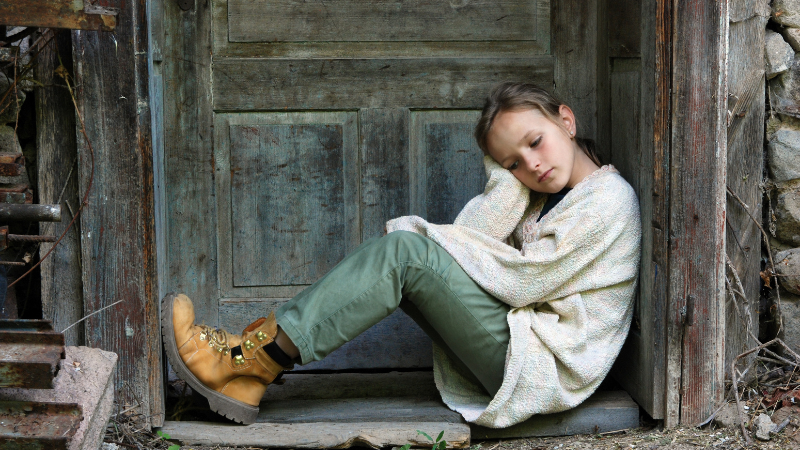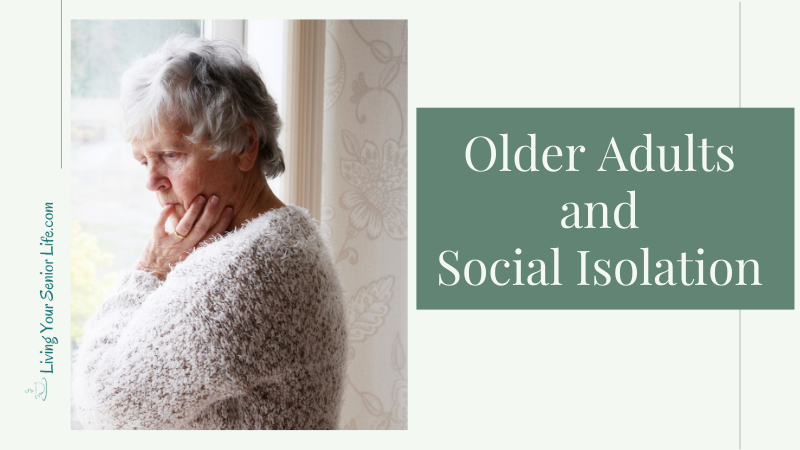As you navigate the complexities of grief and loss, it’s vital to recognize that the way you mourn is as unique as your fingerprint. Whether you’re dealing with the sudden void left by the absence of a family member or grappling with the disruptive shock that follows one of life’s major disappointments, such as losing a cherished job, your experience of grief is a deeply personal journey. The stages of grief, as outlined by psychiatrist Elisabeth Kübler-Ross, describe a series of emotional responses that are not only common but also a natural reaction to significant loss. Throughout this time, the intense sadness and feelings of grief may manifest not just emotionally, but also through physical symptoms affecting your daily life.
While there is no right or wrong way to experience grief, finding healthy ways to cope can play an integral part in your healing process. As time passes, support groups and mental health professionals can offer solace and guidance, helping you to navigate the roller coaster of emotions that come with major life changes. Grief counseling can also serve as a supportive resource to aid you during this difficult time. Remember, the pain of grief is an inevitable part of life, but with the right coping strategies and a network of support, you can move through this experience towards a place of emotional health and acceptance.
Key Takeaways:
- Loss is the experience of losing something or someone that is important to you.
- Grief is a natural response to loss, and it can manifest in a variety of ways.
- Understanding the grieving process and the emotions associated with grief can help you cope with your loss and move forward in a healthy way.
Insights on Grieving and Loss
Loss: It’s an inevitable part of life, affecting not only your emotions but also your physical health and well-being. Encountering the pain of loss is a personal journey that varies greatly from one person to another, as each individual copes in their own way.
Grief: This natural response to loss presents itself in different ways. You might feel a range of emotions from intense sadness to anger, or even go through moments of disbelief. Support groups and grief counseling are resources that can offer guidance during these times.
Coping Mechanics: Understanding the grieving process, including the stages of grief outlined by psychiatrist Elisabeth Kübler-Ross, empowers you to process your experience of grief. Engaging in healthy ways to channel your emotional pain can have a positive impact on your healing process.
- Stages of Grief: Acknowledge that you may go through different phases—from feelings of shock to eventual acceptance. There’s no wrong way to move through these stages, and for many, it’s not a linear process.
- Types of Grief: You might experience normal grief, or in some cases, complicated grief, which might necessitate seeking professional help from a mental health professional.
- Major Life Changes: Significant losses can trigger a reassessment of your life experience and an acknowledgment of your own mortality.
- Healing Over Time: As time passes, you may begin to find solace in positive memories and establish new routines in your everyday life.
The experience of grief is as personal as the individual; allow yourself to feel the variety of emotions, seek support if needed, and trust in your ability to endure through the grief experience. Remember, reaching out to social networks or professional services is a sign of strength during times of significant loss.
Video: Coping With Loss
So What Are the Stages Of Grief?

When we experience loss, we experience grief, a reaction to loss. Grief is a universal experience that affects everyone; there is no ‘right’ or ‘wrong’ way to cope with loss.
Regardless of how well-prepared you are, a loss is a difficult experience. Nonetheless, knowing the stages of grief and embracing the process can make it a little easier.
Renowned Swiss-American psychiatrist Elisabeth Kubler Ross was a leader in researching terminally ill patients who were near death. She became famous for her theory of the five stages of grief, discussed in her book “On Death and Dying.” These stages are Denial, Anger, Bargaining, Depression, and Acceptance. Though her research was primarily with patients facing terminal illnesses, her theory has filtered through to include all types of loss.
It’s important to note that not everyone will experience all the stages, and they may not be in order. You can also go back and revisit an earlier stage of grief.
Denial – When Reality Doesn’t Seem Real: The Initial Shock
In the wake of a significant loss, it may initially appear as if life has lost its meaning. This is a point where you might not acknowledge the truth, convincing yourself that there has been some mistake, and expecting life to return to normal. Denial may be useful in the early stages of grief. This stage, characterized by disbelief and numbed feelings, is a natural defense mechanism that cushions the blow from the immediate pain of loss.
Anger – The Heat of Anger
During this phase, it’s common to search for someone to blame. You may find yourself directing frustration towards doctors, relatives, yourself, or even higher powers. It’s a point where intense emotions like agitation and resentment are normal reactions. Navigating through these feelings can be a difficult time, but expressing anger is a necessary step in the healing process.
Bargaining – Negotiating with Fate
In your attempt to deal with the repercussions of the loss, you might find yourself mulling over the “what ifs” or “if only” statements, hoping to find a way to alleviate or reverse the pain. Seeking a sense of control, you may try to strike an imaginary deal with a higher power to negotiate away the hurt or find resolution.
Depression – The Weight of Sorrow
As you start to comprehend the reality and magnitude of your loss, you might be enveloped by a profound sense of sadness. This feeling is often accompanied by physical symptoms like changes in appetite or sleep patterns. Depression can also cause physical health problems such as insomnia and weight gain. It’s important to understand that depression is not a sign of weakness but rather a natural response to a major change in your life.
Acceptance – Coming to Terms with the New Normal
Reaching this stage means you have begun to accept the loss as a part of your life story. This doesn’t imply you’ve moved on or forgotten, but rather that you’ve found a way to live with the memories and move forward. Acceptance allows you to make adjustments in your life and reintegrate into your daily routine with a renewed sense of peace.
Symptoms of Grief

Emotional Manifestations of Grief
When you’re working through grief, your emotional health can be profoundly affected with an array of feelings. The experience of grief varies, but emotional pain is often at its core. You may experience intense emotions including:
- Guilt: Feeling responsible for events surrounding a loss, even if they’re out of your control.
- Shock: Initially, you might struggle to accept the reality of a major loss, leaving you feeling stunned or dazed.
- Sadness: An overpowering sense of loss may engulf you as you reflect on the empty seat at the table or the silence left behind.
- Depression: You may feel hopeless, helpless, and overwhelmed. It is important to seek help if you are experiencing symptoms of depression, such as persistent sadness, loss of interest in activities, and changes in appetite or sleep patterns.
- Anxiety: Concerns about your own mortality or the future can prevail during periods of mourning.
- Fear: A natural reaction to changes and uncertainty that accompany a loss.
- Anger: Whether directed at the situation, others, or yourself, anger is a common part of the healing process.
- Numbness: A defense mechanism that buffers the immediate heartache, making you feel detached or indifferent.
Body’s Physical Symptoms to Grief
Grief also manifests through various physical symptoms affecting your physical health. Daily life can be disrupted by symptoms including:
- Changes in Appetite: You might find yourself eating more or less than usual, which can impact your weight and overall health.
- Difficulty Concentrating: Grief can make it difficult to concentrate and focus on tasks. You may find yourself easily distracted or forgetful.
- Fatigue: Exhaustion can make even simple daily activities feel overwhelming, as you might not have the usual energy levels.
- Sleep Disturbances: You may experience insomnia or feel the need to sleep excessively.
- Physical Pain: Grief can cause physical pain, such as headaches, muscle aches, and stomach pain. You may also experience chest pain or tightness, which can be a sign of a panic attack or anxiety.
- Nausea: Digestive issues can arise, adding physical discomfort to emotional turmoil.
- A Weakened Immune System: Your body’s defenses may drop, making you more prone to get sick.
Complicated Grief – Understanding Prolonged Mourning
Complicated grief is a type of grief that is prolonged and does not seem to get better with time. According to Mayo Clinic, symptoms of complicated grief may include intense sorrow, pain, and rumination over the loss of your loved one, focus on little else but your loved one’s death, extreme focus on reminders of the loved one or excessive avoidance of reminders, intense and persistent longing or pining for the deceased, and problems accepting the death.
Trauma – Impact of Loss-Induced Trauma
Trauma can occur after experiencing a sudden, unexpected, and violent loss. Trauma can lead to symptoms such as anxiety, depression, and post-traumatic stress disorder (PTSD). If you are experiencing trauma, it is important to seek professional help to work through it.
Suicide and Suicidal Thoughts
In some cases, grief can lead to suicidal thoughts or even suicide. If you are experiencing suicidal thoughts, it is important to seek immediate help. Remember, it’s crucial during this difficult time to reach out for help—whether it’s calling a crisis line or contacting a grief counselor. Recognize that feelings of shock, hopelessness, and the urge to escape the pain of grief reflect a profound emotional health crisis that warrants immediate attention. Mayo Clinic notes that warning signs of suicide may include talking about wanting to die or to kill oneself, looking for a way to kill oneself, talking about feeling hopeless or having no purpose, and talking about feeling trapped or in unbearable pain.
Isolation – Dealing With The Solitude of Mourning
In the aftermath of a significant loss, you might find yourself withdrawing into isolation. However, remember that drawing back from social networks or daily activities can exacerbate the grief. It’s important to connect with family members, support groups, or even participate in online forums like social media. Such connections offer diverse coping strategies and complicated grief assistance that could be vital in reinstating your place in everyday life.
Please remember, there is no “wrong way” to grieve, and everyone experiences loss and the subsequent journey of grief differently. Reaching out for professional help is not a sign of weakness but a step toward finding your healthy ways to process and adjust to life’s major changes.
Coping Mechanisms – Strategies for Handling Emotional Distress
Losing a loved one is never easy, and it can be hard to know how to cope with the pain and grief that comes with such a loss. Fortunately, there are many coping mechanisms that can help you through this difficult time. Here are a few options to consider:
Guidance Through Professional Counseling
Engaging with a mental health professional can significantly assist in coping with major life changes and the emotional pain that accompanies grieving. Therapists specialized in grief counseling provide support, validating that there is no wrong way to experience grief—it’s a natural response. Through counseling, you’ll receive tailored coping strategies to navigate the intense emotions and stages of grief.
- Actions to take:
- Schedule appointments with counselors experienced in grief.
- Discuss the pain of loss openly.
- Use therapy to understand and address complicated grief.
Support Groups – Solidarity Within Support Circles
Joining support groups connects you with others who share a similar experience of grief, providing a network where discussing shared memories or feelings is encouraged. It’s beneficial for young people and adults alike, reinforcing that you’re not alone during this difficult time.
- How to find groups:
- Search social networks or social media for local or online support gatherings.
- Ask a school counselor or family members for recommendations.
Self-Care Techniques – Personal Care Practices
Self-care is crucial to maintain your physical and emotional health as time passes. Simple daily routines can help in managing physical symptoms and encouraging moments of peace amidst the turmoil of a grieving person.
- Self-Care Techniques include:
- Journaling to process thoughts and feelings of grief.
- Engaging in regular physical activities to support physical health.
- Ensuring adequate rest and nutrition.
Anticipatory Grief – Understanding Early Mourning
Anticipatory grief is a natural response to the impending loss of someone significant in your life. It’s a pre-loss sadness that family members and close friends often experience when a loved one is terminally ill. As you navigate this difficult time, knowing that you are not alone and that there is no wrong way to experience grief can be comforting.
Tips for Managing Anticipatory Grief:
- Self-Care: Take care of your physical and emotional needs. Adequate sleep, nutritious food, and light exercise can help.
- Express Emotions: Write in a journal, create art, or talk about your emotions. Recognizing your feelings of grief is part of the healing process.
- Seek Support: Connect with support groups where sharing experiences can provide comfort. Conversation with a mental health professional can also aid in managing your reactions to major life changes.
The Dynamics of Anticipatory Grief:
- Emotional Spectrum: It’s normal to feel a complex range of emotions from intense sadness to guilt, fear, and even relief at times.
- Long-Term Impact: Grieving before a loss can last a long time, influencing your daily life and activities.
- Professional Help: Reaching out to grief counselors or a psychiatrist can help you navigate complicated grief or major depression.
- Natural Reaction: This type of grief is a natural part of the grieving process as you anticipate major changes and the pain of loss.
Understanding anticipatory grief helps you realize that it’s a valid and very real form of emotional pain. Positive memories and emotional attachment to the person you’re about to lose can trigger a variety of intense emotions. As time passes, the roller coaster of feelings typically associated with later phases of grief occurs in advance. From anxiety and panic attacks to a profound sense of loss, the experience of grief is deeply personal.
Anticipatory grief is the feeling of grief that arises before the actual loss of a loved one. It often occurs when a person is facing the imminent death of someone close to them, such as a family member or friend. This type of grief can be just as intense as the grief experienced after the actual loss, and it can last for a long time.
Helping Children Grieve – Assisting Young Ones Through Mourning

Helping with the emotional journey of a child after a significant loss involves several key actions. Ensure to:
- Talk: Engage in discussions about their emotions.
- Inform: Share suitable details about the loss.
- Express: Encourage various expressive outlets for their emotions.
- Seek Support: Consider groups or counseling tailored for bereaved young people.
Remember, mourning is a unique experience. There is no wrong way to navigate through it. Identifying coping methods that suit both you and the child is crucial. Support from family members and mental health professionals during this tough period can make a substantial difference.
While the stages of grief are diverse, it’s vital to move at a pace that feels natural. If needed, professional help is a valuable recourse for persistent feelings of grief or if grief is interfering with daily life.
The Role of Faith and Spirituality
If you are coping with loss, faith and spirituality can play an important role in the grieving process. Many people turn to their faith or spiritual beliefs to find comfort, support, and a sense of meaning in the face of loss.
Faith can provide a framework for understanding death and the afterlife. It can offer a sense of hope that you will be reunited with your loved one in the future. Prayer can also be a powerful tool for coping with loss. It can help you feel connected to your loved one and provide a sense of comfort and peace.
Spirituality, on the other hand, is a broader concept that encompasses a range of beliefs and practices. It can involve connecting with nature, exploring your inner self, or seeking a higher power. For some, spirituality can provide a sense of purpose and meaning in life, which can be especially important during times of loss.
Whether you turn to faith, prayer, or spirituality, it’s important to find what works best for you. Some people may find comfort in attending religious services or talking to a spiritual leader, while others may prefer to spend time alone in nature or engage in creative activities like writing or art.
Cultural and Personal Differences in Grieving
Grieving the loss of a family member, friend, pet, or any significant other in your life is an intimate and personal journey, influenced by a variety of factors. Cultures around the world exhibit differing traditions surrounding loss, from the funeral rituals to community support.
- Funeral Practices: While some cultures celebrate the life of the deceased with music and joy, others may conduct memorial services that are more subdued. Your participation in these customs can be an expression of respect for the departed and their cultural heritage.
- Cultural Traditions:
- Different cultures have their own unique way of dealing with death and loss. For example, in Mexico, the Day of the Dead is a time to honor and celebrate deceased loved ones. In contrast, in Japan, families may visit the graves of their ancestors during the Bon Festival to pay their respects.
- Attitudes Toward Death:
- Some cultures view death as a natural part of life, while others may fear or avoid talking about it. These attitudes can influence how people cope with loss and grief.
- Religious Beliefs: Religious beliefs can also play a significant role in how people grieve. For example, in Christianity, the belief in an afterlife can bring comfort to those who are grieving, while in Buddhism, the focus is on accepting the impermanence of life.
- Support Systems: It’s common to lean on support groups or social networks during this difficult time. Some individuals find solace in the companionship of family and friends, while others might turn to professional help from grief counselors.
- Grief Responses: There is no wrong way to experience grief. It is a natural response to major life changes, and how you process emotional pain can vary. Some people exhibit physical symptoms, others may feel a range of intense emotions, and young children could react differently than young people or adults.
- Stages of Grief: You might have heard of the stages of grief proposed by psychiatrist Elisabeth Kübler-Ross. It’s important to understand that these phases of grief are not linear and can vary in order for each grieving person.
- Continuing Life: As time passes, integrating the experience of grief into daily life is important. Finding healthy ways to cope and holding on to positive memories could ease the intense sadness associated with a major loss.
Recurring Grief or Anniversary Grief

When you encounter significant dates such as the passing of a loved one, birthdays, or holidays, it’s not uncommon to feel a resurgence of grief. This phenomenon is widely known as anniversary grief and can elicit a range of emotions including sadness, guilt, or anger. Recognize that these emotional responses are a natural part of the healing process and not indicative that you are not moving forward.
Coping Mechanisms:
- Recognize Your Emotions: It’s imperative to let yourself experience these emotions. Whether intense sadness washes over you or you’re grappling with guilt, suppressing these feelings can hinder your progress. Allowing yourself to grieve is a healthy way to address these feelings.
- Establish New Traditions: To honor the memory of those you’ve lost, consider initiating new traditions. Planting a tree in their memory or contributing to a cause they cared about can maintain a connection while helping you embrace major life changes.
- Seek Support: During this difficult time, support from family members, friends, or support groups can be invaluable. Sharing your emotional pain with those who have endured similar experiences promotes a sense of community and comfort.
- Prioritize Self-Care: Do not neglect your own needs. Ensure adequate rest, nutrition, and physical activity. Engage in activities that bring happiness, like enjoying a favorite hobby, which is beneficial to both emotional and physical health.
By embracing these strategies — recognizing your feelings, instigating new rites, seeking help, and self-care — you can manage anniversary grief effectively. As time passes, while the emotional pain may not completely vanish, navigating it becomes more manageable. Remember, everyone grieves in their own way, and there is no wrong way to process the loss of a close friend or family member. Moving through the stages of grief is a personal journey and reaching out for professional help from a mental health professional is also a positive step when dealing with complicated grief or when grief interferes with daily life.
Life Beyond Loss
Practice Compassion with Yourself
It’s crucial to tackle one day at a time; trying to overcome everything simultaneously is unrealistic. You deserve the same kindness you extend to others. It’s also vital to express your emotions. Allow yourself to mourn in the manner that is most authentic to you.
Discovering Your Resilience
In the thick of emotional turmoil, you might doubt your strength, but you are more resilient than you realize. Sadness and despair may be present, but they don’t have to dictate your existence permanently. Sometimes, turning to a mental health professional is the best route to manage overwhelming feelings.
A Glimpse into the Future
The path to recovery may feel distant, but with time, the sharpness of grief softens. As you navigate through your feelings of grief, the promise of healing emerges. Release the pressure of meeting certain grief milestones; each journey is deeply personal.
Remember that coping with loss is a journey, not a destination.
Validating Your Emotions
Your experience of grief is as individual as you are; every emotion has its place. Whether you feel anger, exhaustion, or sorrow, these are all natural responses. There’s no textbook method or timeframe to reconcile with the loss of a loved one.
Embracing Grief’s Ebbs and Flows
Grief can be unpredictable, resembling a roller coaster rather than a linear progression. Some moments bring stability; others may usher in a fresh wave of distress. Recognizing this fluctuation can help you cope with the unpredictable nature of mourning.
FAQs
How can you support someone who is grieving?
If someone you know is grieving, it can be challenging to know what to say or do. The most important thing is to be there for them and offer your support. To back someone in grief, show up and express your care. Listen and be willing to hear their feelings. Offer a hand with daily life tasks, lending practical support. Everyone handles sorrow in their own way, so patience is key.
What are some myths about grief that you should know?
There are many myths about grief that can make it harder to cope with loss. One common myth is that there is a “right” way to grieve. In reality, everyone grieves differently, and there is no one-size-fits-all approach. Another myth is that time heals all wounds. While time can help, grief is a process that takes time and effort to work through. Finally, it’s a myth that you should “move on” or “get over” your loss. Grief is a natural and necessary process, and it’s okay to take the time you need to heal.
How can you find meaning after a loss?
In seeking meaning post-loss, engaging in acts that honor your lost one, like a memorial service, could be helpful. Assisting others or contributing to causes can create a sense of purpose. Remember that understanding life after a major loss is a journey that requires time.
Adjusting to a New Normal After Loss
When you face the pain of loss, it’s essential to recognize that grieving is a personal journey. Each person experiences grief in their own way, often moving through stages of grief that vary widely among individuals. As time passes, the emotional pain may persist, yet many find that establishing new routines can ease the adjustment to major life changes.
If you find yourself grappling with intense emotions or physical symptoms in the wake of a major loss, it’s beneficial to explore healthy ways to navigate this difficult time. There’s truly no wrong way to process your feelings of grief, but there are methods that can support you as you adapt to this significant loss.
- Support groups and grief counseling may provide solace and understanding from those who have undergone similar experiences.
- Engaging in self-care practices or spiritual activities might help to manage the grief experience.
- For young people, talking to a school counselor can be particularly helpful.
When the experience of grief feels overwhelming, or if symptoms seem akin to complicated grief or major depression, seeking professional help from a mental health professional can be one of the best ways to cope.
Daily life might seem different, and tasks that were once easy may now feel daunting. Remember, experiencing a range of emotions is a natural response to grieving. Over time, the support of social networks, whether family, friends, or social media, can play a pivotal role in the healing process.
Though the emptiness left by the loss of a friend or family member can’t be filled overnight, drawing upon coping strategies and emotional support can usher in moments of positive memories and peace. It is an inevitable part of life to lose and mourn, yet how you live on and honor the memory of lost loved ones may empower you to find resilience and hope.
How have you dealt with loss in your life? Please comment below.











